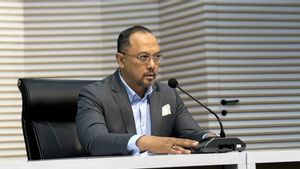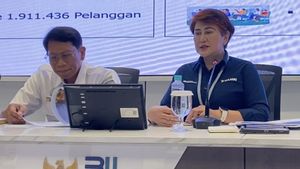JAKARTA - The government will soon announce a ban on raw copper exports in the near future. The export ban was carried out to boost state revenues amid the shadow of the threat of a global recession.
Executive Director of the Center of Reform on Economics (Core) Mohammad Faisal said the entire downstream program being planned by the government was solely to encourage national economic growth and create new jobs.
"All of these downstream programs are basically to create greater added value, multiply in the country, both downstream mining and plantations, both copper, nickel, bauxite, and so on. That is the same principle," Faisal told VOI, Thursday, February 2.
To achieve this added value, said Faisal, the government must also downstream the industry, so that it can grow its derivative industry in the future.
"If previously there were many copper seeds exported rawly, now it must be processed first in the country. This means that there will be a growing derivative industry, yes, both the smelter and its derivatives again, so that there will be an increase in processing from raw materials to semi-finished materials, only then maybe exported after that. That is, increasing value," he explained.
Faisal said, in increasing this value, there will be new jobs created. This is because jobs that have only grown upstream, now lead downstream.
"Well, the impact of this value creation is on increasing the national and regional GDP as well as on job creation. So, basically if GDP increases, the number of jobs also increases, it is hoped that it will increase per capita income," he added.
For your information, Indonesian President Joko Widodo (Jokowi) revealed that he would soon announce a policy to ban the export of crude copper. This decision follows a similar policy that has been in effect for nickel, then bauxite as of next June.
"Soon, I want to announce the stop copper this year," said President Jokowi in his remarks at the Mandiri Investment Forum 2023, in Jakarta, Wednesday, February 1.
Jokowi said consistency in implementing downstream policies would increase Indonesia's per capita income.
The English, Chinese, Japanese, Arabic, and French versions are automatically generated by the AI. So there may still be inaccuracies in translating, please always see Indonesian as our main language. (system supported by DigitalSiber.id)








